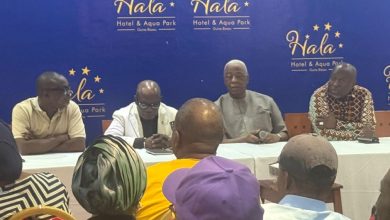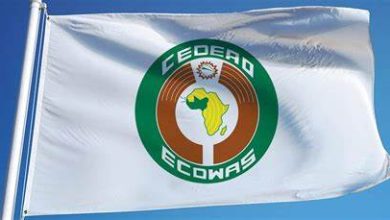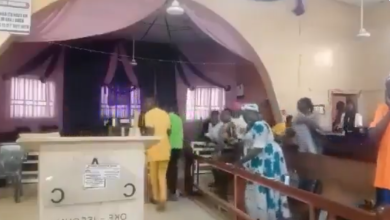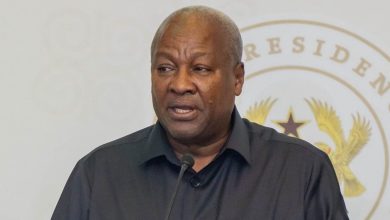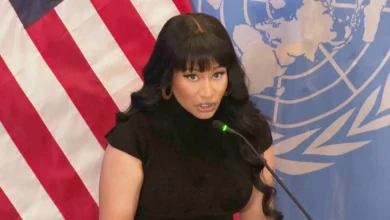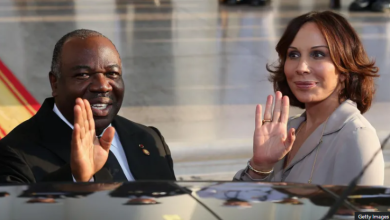Mauritania’s Sidi Ould Tah Named New AfDB President, Succeeds Adesina
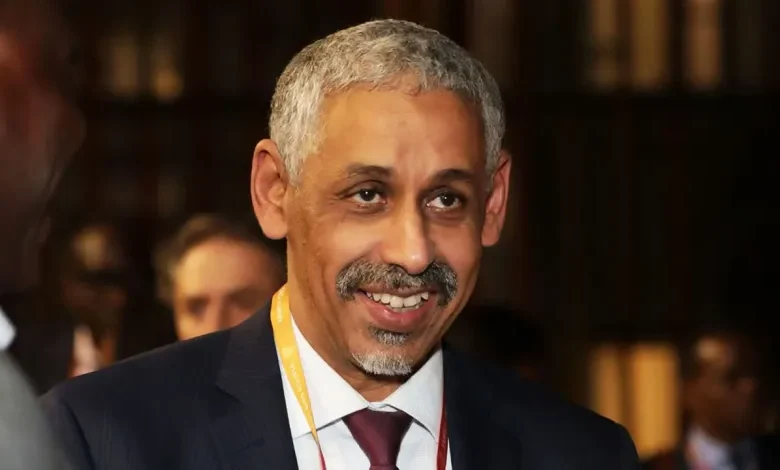
Dr Sidi Ould Tah, the former Director General of the Arab Bank for Economic Development in Africa (BADEA), has been elected as the next President of the African Development Bank (AfDB).
He will replace outgoing President Dr Akinwumi Adesina, who has steered the bank’s affairs over the last 10 years. The African Development Bank Group held its presidential election on Thursday, 29 May 2025, during its 2025 Annual Meetings in Abidjan, Côte d’Ivoire.
In all, five candidates contested for the role: Senegal’s Amadou Hott, South African Swazi Bajabulile Tshabalala, Mauritania’s Sidi Ould Tah, Zambia’s Samuel Munzele Maimbo, and Chad’s Mahamat Abbas Tolli.
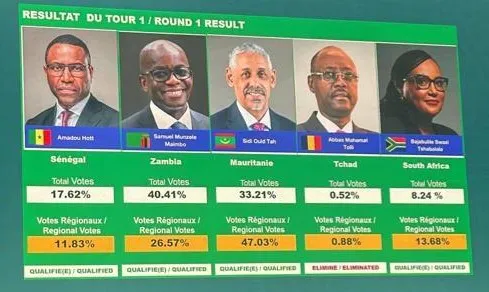
After the first round of voting, Amadou Hott polled 17.62%, Swazi Bajabulile Tshabalala polled 8.24%, and Sidi Ould Tah secured 33.21%. Zambia’s Samuel Munzele Maimbo led the first round with 40.415, and Mahamat Abbas Tolli had 0.52%.
In the second round, Sidi Ould Tah secured 48.41%, Samuel Munzele Maimbo, 36.68%, Swazi Bajabulile Tshabalala polled 5.90%, and Amadou Hott had 9.02%. Sidi Ould Tah subsequently secured 76.18% to meet the required 50.01% at the third round to win the AfDB presidency. Samuel Munzele Maimbo polled 20.26% and Amadou Hott secured 3.55% in the third round of voting.
What does Dr Sidi Ould Tah offer?
Unlike some of his rivals who have had stints at the AfDB, Dr Sidi Ould Tah presents a fresh face to the continent’s apex Bank, appealing to those demanding a complete break from the outgoing administration and norms.
One of the AfDB’s main challenges is ineffective financing. Despite ambitious funding announcements, such as the $10 billion COVID-19 response in 2020, actual disbursements fall short, averaging only $8–10 billion annually.
The Bank remains heavily dependent on external capital increases and struggles to attract private investment and transformational FDI.
To address this, Dr Ould Tah plans to mobilize innovative capital through diaspora and green bonds, enhancing financial efficiency, and forming strong partnerships with investors from the Global South to attract new liquidity to Africa.
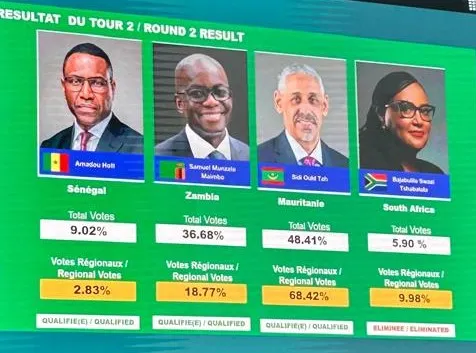
The second major issue is delivery. AfDB’s slow project implementation, broad strategic goals, and rigid internal processes have undermined its credibility and ability to respond to urgent challenges.
Dr Ould Tah proposes major operational reforms to improve speed and accountability, streamline decision-making, and focus on measurable, high-impact goals.
Drawing on his success at BADEA, he also advocates for digitally driven, flexible operations to boost resilience in the face of crises such as climate change and youth unemployment.
Governance is the third key concern, with excessive presidential power, weak board authority, and limited oversight compromising accountability. The Board currently lacks influence over major decisions, and key oversight roles are insufficiently independent from executive management.
To remedy this, Dr Ould Tah intends to strengthen governance by empowering the Board with real oversight functions and fostering a more inclusive leadership approach, beginning with open staff and partner consultations in his first 100 days if elected.
A champion of youth, SMEs, and homegrown growth
Dr Ould Tah’s work at BADEA redefined development banking in Africa. His push to empower small and medium enterprises (SMEs) was central.
From launching the Global Coalition for African SMEs to pioneering the 100,000 SMEs Campaign (an initiative aimed at creating one million jobs in three years), his legacy is one of action.
“Africa must climb up the value chain. Supporting youth entrepreneurship, encouraging industrial clusters, and investing in digital infrastructure will also be critical,” he said in a recent interview, solidifying his status as a champion of SMEs and job creation for women and young people.
His collaborations with institutions such as AfCFTA, AUDA-NEPAD, and AFD created ecosystems of support for SMEs across various value chains.
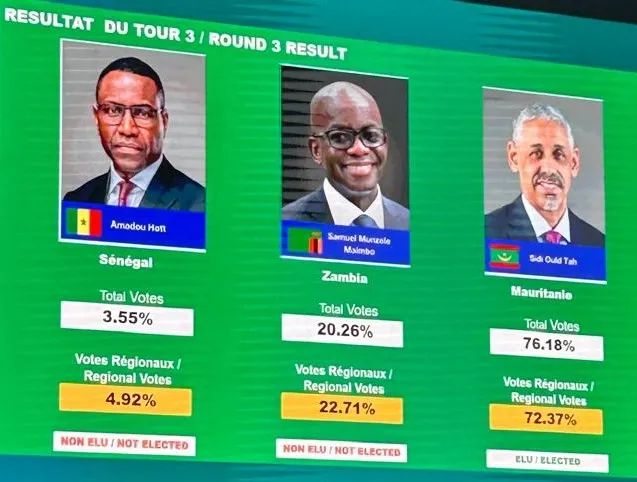
Under his leadership, BADEA’s capital base increased by 376%, reaching $20 billion, and the institution earned an AA1 credit rating from Moody’s, the second-highest rating in Africa. Assets at BADEA under his watch were also significantly increased by 75%, rising from $4 billion to nearly $7 billion.
A forward-thinking candidate of unity, progress for Africa
At a time when Africa faces intersecting challenges—from climate shocks to infrastructure gaps—Dr. Ould Tah brings a steady hand, strategic mind, and inclusive vision.
His leadership is grounded in pan-African values, institutional accountability, and sustainable growth. As a bridge between North, West, and Sub-Saharan Africa, his candidacy also promises to bring regional balance to the helm of the African Development Bank (AfDB).
His forward-thinking approach led to the launching of the BADEA 2030 Strategy, a forward-looking blueprint centered on infrastructure, private sector development, agricultural value chains, and SME support.
These achievements are not just numbers—they reflect an ability to deliver results at scale, build investor confidence, and champion African ownership of development.
Dr Ould Tah’s experience spans across the continent and global development institutions. A former Minister of Economic Affairs and Finance of Mauritania, with senior roles at the Islamic Development Bank and Arab Authority for Agricultural Investment and Development, and Governor representing Mauritania at the World Bank, AfDB, and IsDB, Dr Ould Tah is already prepped up for global leadership.
His fluency in Arabic, French, English, and working knowledge of Spanish and Portuguese further demonstrate his ability to build bridges across Africa’s diverse linguistic and cultural landscapes.
The support kept pouring in!
In the run-up to the election, Dr Ould Tah garnered massive support and endorsement from key stakeholders in Africa’s political and economic landscape.
The Republic of Benin officially threw its weight behind Dr Ould Tah. President Patrice Talon dispatched a high-level delegation to Mauritania, carrying a personal message of endorsement for President Mohamed Cheikh El Ghazouani.
“Our brother Sidi Ould Tah has the profile and the skills required to turn the AfDB into the true development tool the continent needs today. We offer him our full support and stand ready to rally all our partners behind this candidacy,” the delegation declared.
“This support reinforces my belief that our continent is ready to unite around a shared vision for a stronger, more inclusive African Development Bank,” Dr Ould Tah responded with gratitude:
Dr Ould Tah convened a high-level meeting with His Excellency, John Dramani Mahama, President of the Republic of Ghana.
The engagement formed a key part of Dr Ould Tah’s diplomatic outreach for support, as both leaders discussed strategic support to consolidate his candidacy, from the Ghanaian president, whose endorsement is considered highly influential within the African political and economic landscape.
His successful track record at BADEA speaks volumes. Positioning himself as a “trait d’union”, the proven multilateral leader is poised to link Arab and sub-Saharan Africa.
BADEA’s shareholders—major Arab states like Saudi Arabia and Kuwait, who are big AfDB investors, could provide massive support for his candidacy.
Côte d’Ivoire’s Alassane Ouattara’s endorsement is also imminent. Côte d’Ivoire not only plays host to the AfDB’s headquarters, but also holds nearly 4% of the votes.
About Dr Ould Tah
Dr Sidi Ould Tah is a distinguished Mauritanian economist and development leader who recently resigned from his role as Director General of the Arab Bank for Economic Development in Africa, a position he held since July 1, 2015.
He began his professional journey in the 1980s, working as an expert at the Mauritanian Bank for Development and Commerce (BMDC) and later as a financial analyst at the Food Security Commission.
He also held key administrative roles in Nouakchott, including Finance Manager and Director of Internal Auditing at the Port Authority. In 1996, he joined the Arab Authority for Agricultural Investment and Development (AAAID) in Khartoum as a financial analyst.
Between 1999 and 2006, he served as Investment Promotion Officer and Technical Assistant to the President at the Islamic Development Bank.
Upon returning to Mauritania, Dr. Ould Tah held significant government positions, including Advisor to the President and Prime Minister (2006–2008), and Minister of Economy and Finance, followed by Minister of Economic Affairs and Development (2008–2015).
He also represented Mauritania as a Governor at several international financial institutions, including the World Bank, the Islamic Development Bank, the African Development Bank, and the Arab Fund for Economic and Social Development.
Dr Ould Tah holds a PhD in Economics from the University of Nice-Sophia-Antipolis and a Diplôme d’Études Approfondies (DEA) in Economics from Paris VII University.
He has also completed executive programs in investment, leadership, asset management, and financial engineering at institutions such as the Harvard Institute for International Development, London Business School, and Swiss Finance Institute.
His contributions have been recognized with several honors, including the Knight Medal of the National Order of Merit of Mauritania, Senegal’s National Order of the Lion, and Officer of the National Order of Chad.

